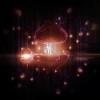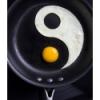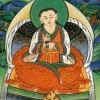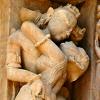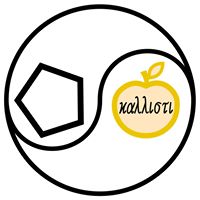Search the Community
Showing results for 'Dream'.
Found 7,591 results
-
Thats a strange point of view mate. But I would go with other . How cool would it be if people stopped making millions for these cock suckers , stopped listening to the law of attraction shite , stopped visualising the violet flame and arch angel who ever and actually put some work in to generate real energy with intent and power. Ah one can only dream. How cool would it be if these people who constantly hop from the alinging the cha-ka-raaas workshop to the how to ascend in 7 days workshop realised , dammmmm , I just need to put some serious gong fu in and maybe , just maybe Ill get somewhere, maybe if i stop going to that tantra class with all the middle class beautiful people and actually conserve and transmute my energy then I might get somewhere. If we could all just taste the tiniest fragment of truth we could see so clearly the lies and deceit laid out before us on this multi million dollar path to enlightenment. But , looking at it one way , least we know these frauds and spiritual sharks will indeed have to face the consequences of there actions of the blatant soul stealing one day. Ahh happy happy.
-
The original Star Trek had an episode that demonstrates the existential danger of making war fare to easy. Drones make warfare relatively cheap, clean and far away. No solders at risk, collateral damage thousands of miles away. Killing so easy that we don't see a need to stop it. A military strategists wet dream. And it starts feeding the ever hungry military industrial complex.
-
Mess up your kitchen. Get some bread crumbs and sprankle it around the kitchen. Open all the storage containers and spread some bread crumbs in storages aswell. When you make food, throw around some extra bread crumbs before you start eating. When you're done eating, throw around some bread crumbs. Leave the food in the kitchen, make bread crumb pathways to the left overs. Then when you're done doing that, randomly throw around some bread crumbs to celebrate what you've just made. When you watch TV, get some bread crumbs ready to throw when you get excited. If you had a bad dream, throw some bread crumbs for the mice on your bed to protect you from bad dreams. A bed cover keeps you safe, but if you add mice and breadcrumbs to that, your defense rating goes up. Always have bread crumbs ready in your pocket. So that when you get very excited, throw around some bread crumbs.
-
I am doing basic qigong training in springforest qigong and robert pengs qigong course, right now at the moment. I wasn't scared but only because I have experienced so many unbelievable things I no longer think this world is even real. Nothing seems to phase me anymore. I believe the red lights may have been during a lucid dream. I get up several times a night and usually they are all in dreams. LOL. but still the red lights seemed to projected like from a laser pointer, there were some stripes along the walls but I could find no source of the light as if it were coming out of my curtains, and walls themselves. It's quite possible it was only a dream. I turned on my lights got something to drink and went back to bed. Like I said I am not 100% this world is even real anymore so I don't let things freak me out.
-
Taking this into consideration, we should then reflect on how we are skewed towards extremes, in every moment of our day-to-day experiences. In subtle and gross states of experience and manifestations of thoughts, in the meditative and post-meditative periods, deep dreamless sleep and dream states, etc.; whether we stray towards reification and depreciation, affirmation and rejection, craving and aversion, etc.
-
Hello Sifu Terry,, I didn't dream, the second part of your comment wasn't there the first time I read it right? If it was, I feel a bit stupid for insisting and asking you more details about why masters healers were more focused on humans than the rest. So sorry for that. Thank you very much for your answer. Could you please elaborate on what is exactly an avatar? Christlike or others? Can the same avatar be met under different shapes? Thanks, Best regards, Aurélien
-
First off, this universe is completely equivalent with illusion, like a lucid dream. So to speak of a Creator is meaningless. If you can't fathom that, think about this. There is an ad infinitum regression of cause and effect. Logically the Big Bang has causes, which in itself has causes, which in itself has causes etc. There is no place for a Creator in an ad infinitum regression of cause and effect.
-
Definitely. Actually I feel like it's completely different from how it was before. I can recognize a few stages that seem to happen each time I sit now. First, there's a sort of snapping to attention that occurs - I don't try to do this, it seems to happen naturally even if I let my mind wander a bit - and soon after that I become very relaxed and the pleasant bodily feelings start. After sitting with those feelings for a bit, they'll usually take off into mind and body euphoria (piti? sukha?). I've had two different things happen after that. One will be a sinking feeling as the euphoria seems to taper off (this reminds me very much of how the stages of Jhana are supposed to go) and this sinking feeling can end in a kind of complete emotionlessness, or it fades back to normalcy before it gets all the way there. The other thing that can happen after the peak is the euphoria turns into a very bizarre buzzing and my eyes start to vibrate very quickly. It puts me in mind of a black hole sucking you in, maybe? I've had some of these stages happen independent of mediation as well. The emotionless/empty feeling has just kind of happened a few times without any catalyst - though I should say that I've been paying close attention to my mental states and trying to remove judgments from them, so this might be a kind of meditation anyway. The buzzing has happened a few times when I've been laying in bed - actually just last night I was laying there, and I had the feeling that I was aware of my skull (if that makes sense, lol!) and I was moving my jaw and thinking about how the bones and skin are very odd. I felt kind of like I was inside of the skull or something. That's when the buzzing started and I felt a bit like I was being sucked down a drain. I should note that I wasn't tired during this, so I don't think it was a dream state. I tried thinking about my jawbone again this morning - kind of moving it up and down - and I had a similar feeling appear again. I used to have that happen sometimes, actually. I'd get very dull and fuzzy and feel a bit numb after I got up. It felt kind of odd, really. Sorry to go into all the gory details, haha, but I just find all of this very interesting. If I went back a month or so and told myself about these mind-states, I probably would have thought I was lying or I'd gone crazy. O_O This is a good idea. I used to read a passage or two of the DDJ every day and just kind of lounge and think about it. ^^ It's a lot of fun to go back to it now! You're totally right, of course, haha, but I'm not really aiming for anything in particular, so it's just fun to see what other people could tell me about all of it. When the first event happened, I definitely over thought it, but I don't think that's too much of a danger now. When I realized that all the good things that had happened were tied to letting go, it was hard to justify holding on to anything. I had a week or two where I kept finding myself all caught up in an emotion and I just realized how ridiculous I was being, haha. I've had a lot of trouble with anxiety in the past, but at this point I don't see how it could catch me again. If I feel some kind of negativity, it's very easy to dissociate from it and just let it be whatever it is. It goes away within a minute.
-

21 BLATANT LIES OBAMA HAS TOLD YOU DIRECTLY TO YOUR FACE
子泰 replied to eye_of_the_storm's topic in The Rabbit Hole
He had a dream -
Looks like a must-have. I'm currently reading The Tibetan Yogas Of Dream And Sleep Very impressive it is too.
-
MPG's posts above plus his apocalypse dream with John Chang together equal a strange picture. Is he the first horseman?
-
Has anyone here preformed qigong exercises during a lucid dream? Have you tried seeking a master during dreams? Seeking information on training etc? I had the most amazing dream today, I could only bring back a fragment of a sentence, "west of the moon" I was reading so much I couldn't remember it all. I could feel the flows of energy inside my body like air or water, it was AMAZING. I honestly believe this is the key to a higher level of qigong/neigong practice. But I found this wonderful poem by Tolkien (which I have no memory of ever reading) West of the Moon Still round the corner there may wait A new road or a secret gate; And though I oft have passed them by, A day will come at last when I Shall take the hidden paths that run West of the Moon, East of the Sun. -J.R.R. Tolkien, The Lord of the Rings
-
The entire point of yin vision is to see spirits so you can give them freedom from hallucinatory existence in the bardo as a wandering and often hungary ghost. Ghosts often attach to people because they need prana or energy to live. 5 thunder magic is a hybrid of Vajrayana / Taoist exorcistic methodologies, but it is a violent method that injures the ghosts and should ONLY be used on violent spirits. Personally, I prefer Tibetan bardo chod to liberate ghosts, because it is a compassionate non-violent method. Most ghost are not violent, just confused (lke in a dream) and hungry. http://www.tibetanchod.com/curriculum/bardo-chod/ Yin vision is also useful to see if the cause of a persons suffering or illness is spiritually related. Mak Tin Si not not trained or initited into ANY Taoist orders. He is a self proclaimed master. I'd suggest you learn ritual from an authentic linage master like Lama Jinpa, who has gone thorugh the traditional 3 year 3 month solitary retreat to EARN the title of Lama. Guru is a title that gets thrown around FAR too loosely here in the west.
-
I just asked, if he is really a lama, authorized by Ralo rinpoche, if he really has the lineage connections. Yes, he may have the connections, but so is the other few hundred, or thousand, who got the empowerment. But it is not about teaching, but pacticing If you check his website you can find this, among the subjects he is teaching: "Elements of Santig Phurba Practice: learn the mantra, visualizations, and essence of Nyingma tantra of the ruthless compassionate one. This class will explore the basics of Cave Lama practice that is without the ceremonial ritual elements." Sound good, but without authorization it's just messing with serious karma. Refusal of prostration is not only a bad manner, but pure ignorance concerning what this is all about. It's not a contest of who is the bigger dog, but a gesture of respect towards the Buddha within. " If you see a dog like a Buddha, you get the Buddha's blessing, when you meet, but if you see a Buddha like dog, you get a dog's blessing." He may be a powerful man, with lots of skills, but why he has to present himself this way? Ralo rinpoche's daughter answered to me a very eastern way. She just said that the guy is an impostor, in case, you can not decode what she wrote politely. I really wanted to believe Max, against all my better knowing of tibetan buddhism. Two days ago I had a clear dream of my Lama, who gave me a book. In the book he said that Max is not a Lama. I woke up and still mistrusted my dream, although it was very definite answer. Then the email arrived. Why? Even if I want to trust his Taoist connections, which I can not check, how, after this? He could say: ok guys I checked out some nyingma stuff, I feel I can do better than them, without too much ritual. You don't have to be a lama to be very powerful. Do you know who Lobsang Rampa is? He wrote some books on tibetan buddhism. He claimed to be the clairvoyant of the Dalai Lama, healer, etc. Later it turned out, that he was a plumber in Manchester. He even claimed to have changed body with the English guy, in order to fulfill his mission. So, now I stop. If you experienced nice things meeting him, good for you. I hope you get enlightened soon, and have a nice thought about this unbeliever, with too much dust on eyes. I will not write more on this subject of distrust, but I am really interested, what explanations or excuses can you find? Have a better day!
-
The other two quotes become clearer when understood in this way: http://thetaobums.com/topic/33394-meditation-on-the-nature-of-thoughtsappearances/?p=515844 As the glorious Chandrakirti wrote, Things do not arise causelessly, nor from Ishvara, Nor from self, nor other, nor both; Therefore, it is clear that things arise Perfectly in dependence upon their causes and conditions. Things do not arise from any of the four possible extremes: from self, other, both or without cause, and there's no fifth possibility. Therefore, things do not truly arise—they do not come into existence; they do not actually happen. Then what is the appearance of them happening? It is just like the appearance of things happening in a dream; like the appearance of a moon shining on a pool of water; and like the appearance of an illusion. It is dependently arisen mere appearance. In this way, since sounds do not exist in genuine reality, and since in relative reality they are just dependently arisen mere appearances, all sounds are simply sound-emptiness. http://www.dharmawheel.net/viewtopic.php?f=77&p=212052&sid=02d01499d9cae1bb091cce1e4eaec52a#p212052 Loppon Malcolm: "Indeed, from the perspective of Madhyamaka a thing and its nature are identical. This is not so for those in lower schools. To elaborate, conditions are merely an appearance. The notion of conditioned and unconditioned arises out of the substantialist roots of the substantialist tenet systems. By showing that the essence of phenomena is unconditioned, you are essentially showing that phenomena are in truth unconditioned. This is why the Prajñāpāramita makes statements like: Any teaching by the Bhagavan that matter lacks inherent existence, does not arise, does not cease, is peace from the beginning and is parinirvana by nature, all such teachings are not the indirect meaning, nor the intentional meaning, but must be understood literally. (Ārya-pañcaśatikā-prajñāpāramitā)" What this basically means is that the nature of the conditioned (samsara) is itself unconditioned (nirvana); this should be understood in terms of the 5 skandhas, 18 dhatus, 12 ayatanas. On the relative level, appearances co-dependently arise, endure, and cease, but this is equivalent to an illusion; on the ultimate level, these appearances are free from arising, enduring, and ceasing, therefore all appearances are nonarising i.e. empty. The dichotomy of a conventional and ultimate levels of truth is false, because they are a teaching meant for deluded sentient beings. Appearances are unestablished by nature, since they are only established conventionally as mere imputations, these imputations do not exist in actuality, because appearances are free from the extremes of "is" or "is not" i.e. existence, nonexistence, both, neither.
-
In Praise of Dharmadhatu by Nagarjuna tran. by Karl Brunnholzl pg, pgs. 68-82 Anguttara Nikaya: O monks, the mind is luminosity, and yet it is defiled by adventitious defilements. An ordinary being who has not heard about this does not realize it as it really is. Therefore, I say that an ordinary being who has not heard about this does not possess the cultivation of mind. O monks, the mind is luminosity, and yet it is freed from adventitious defilements. The noble shravaka who has heard about this realizes it just as it really is. Therefore, I say that the noble shravaka who has heard about this possesses the cultivation of mnd. What is taught to be always like the sky, nonconceptual, luminous, and free from middle and extremes is said to be this wheel of dharma. Astasahasrikaprajnaparamitasutra says: The mind is no-mind. The nature of the mind is luminosity. and: Subhuti, these minds are natural luminosity. It is thus that the Tathagata, based on this prajnaparamita, fully knows reality just as it is -- that the undefiled minds of these sentient beings immeasurable [in number] are in fact undefiled. Pancavimshatisahasrikasutra: "...Thus, the mind is no-mind. The nature of the mind is luminosity." Shariputra asked, "What is mind's luminosity?" Subhuti said, "Venerable Shariputra, it is the mind neither being associated with nor dissociated from desire, neither being associated with nor dissociated from hatred, ignorance, upsurges, obscurations, contaminations, entanglements, or wrong views. This, Shariputra, is mind's luminosity. And about the all-pervasiveness of this luminosity: Since form is natural luminosity, it is completely pure and undefiled. Since feelings, discriminations, formations, and consciousness are natural luminosity, they are completely pure and undefiled. Since [everything] up through omniscience is natural luminosity, it is completely pure and undefiled. The Samadhirajasutra says: In whose name and form subtle discrimination operates, In that name and form, the mind will be without craving and luminous. The Saddharmapundarikasutra says: The genuine ones among the bipeds, the Buddhas, Know the nature of phenomena to be always luminous. Thus, I teach a single yana. And about the Buddha's wisdom: The power of my wisdom is like that -- It is very luminous and without all extremes. The sutra's final part praises its qualities in terms of the pure bodies and mental faculties of bodhisattvas (such as being able to instruct others by knowing all teachings, the minds of beings, and so on). The concluding verse states: Their mental faculties will be completely pure, Lucid, luminous, unsullied, Fully knowing dharmas of many kinds, Be they bad, virtuous, or in between. Sagaramatipariprcchasutra: Likewise, Sagaramati, bodhisattvas know the natural luminosity of the mind of sentient beings, but also see that it is defiled by adventitious defilements. The bodhisattvas think: "These defilements have not entered the natural luminosity of the mind of sentient beings. May I be able to teach the dharma in order to remove these adventitious defilements of sentient beings!" The Uttaratantra says: The luminous nature of the mind Is changeless, just like space, It is not defiled by adventitious stains, Such as desire, born from false imagination. The Madhyantavibhanga declares: What is afflicted and what is purified Refer to being with stains and without stains. Purity is asserted to be like the purity Of the element of water, gold, and space. ... It is neither defiled nor undefiled Neither pure nor impure, Because of mind's luminosity And the adventitousness of defilements. The Mahayanasutralamkara states: Mind is held to be always luminous by nature, Contaminated [only] by adventitious flaws. The Dharmadharmatavibhaga says: To penetrate the nature [Of the fundamental change of state]: It is suchness without stains, So that adventitious stains do not appear, While suchness does appear. ... Examples for the fundamental change of state Are space, gold, and water. Furthermore, Asanga's Yogacarabhumi states: In brief, the Bhagavat taught that a sentient being is a [mind] that has defilements from a long time in the past, yet is without a creator. At present, it is momentary and naturally luminous. He taught that, in the future, it will be [further] defiled through heedlessness or purified by heedfulness. Kambala's Navashloki: You may think, "This naturally luminous mind, which is free from apprehender and apprehended and is completely pure, since the stains of ignorance (such as desire) are relinquished, actually exists." In order to eliminate such clinging to the existence of this mind, it is taught to be like the reflection of the moon in water... "Clear" means being free from the turbidities of latent tendencies.... Since perfect wisdom dispels the darkness of ignorance, pacifies the burning heat of the afflictions, and is not tainted by the stains of latent tendencies, it resembles the moon. Although this [moon of wisdom] appears in that way, it is not found as something that is directly perceptible, because what dawns in such a pure mind stream is not apprehendable as a real entity. The reason for this is that, from empty phenomena, nothing but empty phenomena come forth. Since that wisdom is unarisen from the very beginning, it is like the reflection of the moon in water. Thus, since it has the nature of the dharmadhatu, any clinging to entities or nonentities does not exist. Hence, it is not found as something that is directly perceptible. His Alokamala proclaims: The victors who have relinquished the obscurations Have declared, in brief, that samsara Is the mind with stains, such as desire, And liberation consists of being devoid of these. ... When their insight into themselves Is obscured by stains born from being covered, Just as crystals, minds appear As having another nature. ... Saying, "in the end, everything vanishes" Is a rhetorical device for childish beings -- Something else shines forth That cannot be expressed or analyzed. There, dwelling in a place with nothing [to hold on to], That brightly shining space Illuminates the emptiness Of itself and of emptiness Dignaga's Prajnaparamitapindarthasamgraha states: The consciousness of ordinary beings Is pure by nature And expressed by the term "Buddha" just as a bodhisattva is [called] a victor. Its own nature is enshrouded -- Being under the sway of ignorance, It appears otherwise, just like an illusion, While the fruition is like quitting a dream. Dharmakirti's Pramanavartikka says: Mind is naturally luminous, The stains are adventitious. Bhavaviveka's Madhyamakahrdaya says: Unborn, without aspect, Changeless, luminous, Unequalled, infinite, Nonconceptual, without characteristics, Just like space, without anything to look at, It is seen by great beings. The text also presents a number of similar quotes: It is primordially natural luminosity, unborn as any nature whatsoever, not established as subject and object, or knowing and what is known, nothing whatsoever, not dwelling in any extremes, not within the range of any expressions or reference points, inconceivable, unthinkable, and beyond thought. Therefore, do not mentally engage, but meditate by abandoning mindfulness and mental engagement. It even quotes Nagarjuna twice as saying: Everything internal and external is mind as such, Being just like an illusion. This mind is explained as luminosity, Nirvana, all-empty, And dharmakaya. Avalokitavrata's Prajnapradipatika says: The essence of mind is natural luminosity. To put an end to this [mind being ensnared by itself] means the freedom from adventitious stains and the fundamental change of state. and: Since mind is naturally luminous, it is undefiled and pure. Since the defilements are adventitious, it is not undefiled and not pure. [Atisha's] Ratnakarandodghatanamamadhyamakopadesa says: As for the mind, it has no color, and no shape. It is natural luminosity that is primordially unborn. The very knowledge that discriminates this is also luminosity. In this interval, consciousness is nothing whatsoever, does not abide as anything, is not established as anything, and has not arisen as any aspect, and all discursiveness without exception is completely at peace. This meditative concentration of space-vajra that is without appearance and in which all the dust of characteristics has vanished is like the very center of the sky that is lit up by the autumn sun. His Madhyamakopadesa says: What is without form is the mind. As for that [mind], the past mind has [already] ceased and perished. The future mind has not [yet] arisen or originated. As for the present mind, it is very difficult to examine. It has no color and is without any shape. Since it is just like space, it is not established. In other words, it is free from unity and multiplicity, or it is unarisen, or it is natural luminosity...Once all specific characteristics and general characteristics are established as nonexistent [through discriminating prajna], this prajna itself is without appearance and is luminous, not being established as any nature whatsoever. Thus, all flaws, such as dullness and agitation, are eliminated. In this interval [of meditative concentration], conciousness is without any thought, does not apprehend anything, and has left behind all mindfulness and mental engagement. For as long as the enemies or robbers of characteristics and thoughts do not arise, consciousness should rest in such a [state]. The last stanza of Maitripa's Madhyamakasatka says: Luminosity free from the four extremes Which has the character of the deity, Is of the nature of nondual bliss, Sheer dependent origination. Milarepa's song on distinguishing the expedient from the definitive in the context of Mahamudra says: Through realizing that delusion has no ground, The water-moon of awareness is immaculate and clear. The cloudless sun of luminosity Lights up the darkness of ignorance to its very brink. Gampopa instructs: Connate mind is the actual dharmakaya. Connate appearances are the light of the dharmakaya. Connate thoughts are the waves of the dharmakaya. Connate inseparability is what the dharmakaya is all about.
-
Hi guys, i'm from Italy and in the past I practiced Tai Chi. I have been wanting to learn Tai Chi for years, but my dream never came true. It' s possible however I'll get this opportunity not too far. Sure I hope to get as much as i can here. The site looks amazing! Best wishes to you All
-
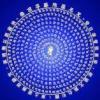
Interdependent Totality in Buddhadharma
Simple_Jack replied to Simple_Jack's topic in Buddhist Textual Studies
A comparative essay on the principles of Tian'Tai and Huayan Buddhism: http://faculty.fullerton.edu/jeelooliu/Tian-tai%20vs.%20Hua-yan.pdf ...The Flower Ornament Scripture denies that the phenomenal world really exists. The phenomenal world means the world we, as human beings, presently experience. In the Flower Ornament Scripture, this world is likened to dream, illusion, phantom, echo, the magician’s conjuring, and the reflection in the mirror. (Chapter 29, 880-86) Everything we perceive around us, this worldly phenomena, is also like a reflection or an illusion. As reflections, objects “have no location” and “no substantial nature.” (Chapter 2, 175) As illusions, objects do not have a real beginning or end, nor do they have a definite origin or a final exit. In one synopsis, the Scripture says that all things “have no true reality.” (Chapter 5, 248) ..... The third patriarch Fa-zang also says, “[W]hatever there is in the world is only the creation of one mind; outside of mind there is not a single thing that can be apprehended…. It means that all discriminations come only from one’s own mind. There has never been any environment outside the mind which could be an object of mind.” (“Cultivation of Contemplation of the Inner Meaning of the Hua-yan,” Cleary 1983,165) Fa-zang further denies the warranty of sense perception and claims that “sense data have no existence.” (ibid.) In other words, it is the mind’s discerning abilities that create myriad things in the world. Reality itself does not have all these discriminations; all things we perceive are thus the mind’s fabrication.... To say that the phenomenal worlds are the result of various minds’ fabrication, is not to say that each mind really “creates” a genuine world. For Hua-yan Buddhists, minds are not real either. The unreal mundane world is not simply the experiential world external to us; we are part of it as well. In other words, our sensation, perception, consciousness, are all part of this unreal phenomenal world; Furthermore, our self-identity and even our very existence are not real. As the Flower Ornament Scripture says, "Living beings, too, are not other than illusion -- on comprehending illusion, there are no 'living beings'. ” (Chapter 29, 880) Even though it is the individual’s actions that create the world, “in truth action has no agent” (Chapter 26, 751) and “the doer has no existence.” (Chapter 10, 301) The [Flower Ornament] Scripture further denies the functions of individual minds: “Eye, ear, nose, tongue, body, mind, intellect, the faculties of sense, all are void and essenceless, the deluded mind conceives them to exist.” (Chapter 10, 300) ... -

7 months into meditation..weird issues, seeing if anyone has input
HoldorFold replied to bax44's topic in General Discussion
Bax44, from your original post it sounds to me like you've opened your higher centers and are feeling ungrounded. I experienced similar symptoms. Depersonalisation/derealisation, over-emotionalism, feeling like I'm in a dream, loss of libido, loss of self, feeling like nothing matters etc. All these symptoms have deep meanings but are also symptoms of being ungrounded and loosing touch with your lower body/self. Squats using heavy weights helps. As does "the horse stance", putting your awareness into your dantian, testicular breathing and sinking chi. I use these techniques and it sorts me right out. -

Ancestor Lu Meets Master Huanglong Huinan
Harmonious Emptiness replied to Simple_Jack's topic in Buddhist Discussion
I was interested to read the original text so I made a translation which I will post below for anyone that might be interested. (If you wish to discuss the translation, please post here. Thank you.). 吕洞宾 百字碑 Lu Dong Bin, 100 Character Tablet 1養氣忘言守 Nourish Chi, forget words. Guard (this state. [nourishing and guarding correspond in meaning]). 降心為不為 Lower the heart-mind’s activity to no activity. 11動靜知宗祖 In the stirrings of clarity and calm, know the ancestral originator 無事更尋誰 Without busying oneself further by searching for anyone. 21真常須應物 The true unchanging principle has to respond and adapt to things. 應物要不迷 In adapting to things, it is necessary not to become confused. [*1] 31不迷性自住 Not being confused, Xing (life-heart) naturally resides. 性住氣自回 Xing (life-heart) remaining, chi naturally returns. 41氣回丹自結 Chi returning, medicine is naturally formed 夢中配坎離 In a dream, the marriage of kan (water) and li (fire) 51陰陽生返復 Yin and yang arise and return, repeatedly 普化一聲雷 All things transform in one clap of thunder 61白雲朝頂上, White clouds of the morning above the summit [*2] 甘露灑須彌。 Sweet dew trickles down mount Sumeru 71自飲長生酒 Naturally drinking the long-life elixir 逍遙誰得知 Roaming freely. Who knows of this? 81坐聽無弦曲 Sitting and listening to the stringless tune 明通造化機 Clarity passes through unhindered to create the mechanism of change 91都來二十句, These twenty verses 端的上天梯 Begin the ascent on the ladder to Heaven *1. alt. translation: The true principle always responds to things. This responsiveness must not be lost. *2. 頂 ding, also means “crown of the head.”- 9 replies
-
- 2
-

-
- Lu Dongbin
- Huanglong Huinan
-
(and 1 more)
Tagged with:
-
The criminals decided to leave the city, out of fear for it being bewitched or cursed. They took what they could and left as fast as possible. The camp was terrifyingly empty. The mists haunted their senses. They took the stuff and left their camp, to go settle down South. Away from it all. Down there, the farmers never heard of a city, not had they had any visitors. They decided to do a honest man's work in exchange for their presence. They turned into good men! And die for this peaceful life they would. Die for it! If only they would never have to see a reincarnation in their lifetime EVER AGAIN! Everyone fitted in nicely. Some picked up the musical instruments, others picked up the women and proclaimed to plant them instead of the vegtables. However, one of the ex-criminals stood out most of all. He was never to be found anywhere, except on dinner time. Always asleep at day, awake at night. As if standing watch, he contemplated the skies. He never got enough of its view and its many stars. On one specific night, this man decided to leave home and never return. He walked up high on the mountains on the warm summer night and lay there. Would never move again, neither return to their settlement. Not untill he got an answer. The answer to the question he would keep asking till his last breath untill, somehow, someway, he would receive the answer. So he asked: "In all the stars I see greatness beyond my understanding. In all the life on earth I see miracles beyond my understanding. But you, who have created all of this, surely must know me and hear me. Then hear what I have to say. In eternity we are, and have been and shall allways be. When I have experienced pain and suffering, you have tainted all of eternity with that foul presence. I ask my self, would I agree to eternally exist in an existance where such a deviation from comfort is possible? No, I would never. For ones you do, there is no turning back. What is your plan, now that eternity is lost to the presence of my suffering? The dream of eternal goodness of every angelic entity is spoiled by the very presence of my displeasure. What would you have me do, besides lay here and slowly vanish from your sight?" And he lay there, waiting for an answer. But it did not come. The sun burned his skin, the air dried his nose. The life picked on his comfort, but his breath did not stop. Tormented by nightmares, he lay there, waiting for answer. But silence is all he received.
-
Hymn to Proserpine (After the Proclamation in Rome of the Christian Faith) By Algernon Charles Swinburne Vicisti, Galilæe. I have lived long enough, having seen one thing, that love hath an end; Goddess and maiden and queen, be near me now and befriend. Thou art more than the day or the morrow, the seasons that laugh or that weep; For these give joy and sorrow; but thou, Proserpina, sleep. Sweet is the treading of wine, and sweet the feet of the dove; But a goodlier gift is thine than foam of the grapes or love. Yea, is not even Apollo, with hair and harpstring of gold, A bitter God to follow, a beautiful God to behold? I am sick of singing; the bays burn deep and chafe: I am fain To rest a little from praise and grievous pleasure and pain. For the Gods we know not of, who give us our daily breath, We know they are cruel as love or life, and lovely as death. O Gods dethroned and deceased, cast forth, wiped out in a day! From your wrath is the world released, redeemed from your chains, men say. New Gods are crowned in the city; their flowers have broken your rods; They are merciful, clothed with pity, the young compassionate Gods. But for me their new device is barren, the days are bare; Things long past over suffice, and men forgotten that were. Time and the Gods are at strife; ye dwell in the midst thereof, Draining a little life from the barren breasts of love. I say to you, cease, take rest; yea, I say to you all, be at peace, Till the bitter milk of her breast and the barren bosom shall cease. Wilt thou yet take all, Galilean? but these thou shalt not take, The laurel, the palms and the pæan, the breasts of the nymphs in the brake; Breasts more soft than a dove's, that tremble with tenderer breath; And all the wings of the Loves, and all the joy before death; All the feet of the hours that sound as a single lyre, Dropped and deep in the flowers, with strings that flicker like fire. More than these wilt thou give, things fairer than all these things? Nay, for a little we live, and life hath mutable wings. A little while and we die; shall life not thrive as it may? For no man under the sky lives twice, outliving his day. And grief is a grievous thing, and a man hath enough of his tears: Why should he labour, and bring fresh grief to blacken his years? Thou hast conquered, O pale Galilean; the world has grown grey from thy breath; We have drunken of things Lethean, and fed on the fullness of death. Laurel is green for a season, and love is sweet for a day; But love grows bitter with treason, and laurel outlives not May. Sleep, shall we sleep after all? for the world is not sweet in the end; For the old faiths loosen and fall, the new years ruin and rend. Fate is a sea without shore, and the soul is a rock that abides; But her ears are vexed with the roar and her face with the foam of the tides. O lips that the live blood faints in, the leavings of racks and rods! O ghastly glories of saints, dead limbs of gibbeted Gods! Though all men abase them before you in spirit, and all knees bend, I kneel not neither adore you, but standing, look to the end. All delicate days and pleasant, all spirits and sorrows are cast Far out with the foam of the present that sweeps to the surf of the past: Where beyond the extreme sea-wall, and between the remote sea-gates, Waste water washes, and tall ships founder, and deep death waits: Where, mighty with deepening sides, clad about with the seas as with wings, And impelled of invisible tides, and fulfilled of unspeakable things, White-eyed and poisonous-finned, shark-toothed and serpentine-curled, Rolls, under the whitening wind of the future, the wave of the world. The depths stand naked in sunder behind it, the storms flee away; In the hollow before it the thunder is taken and snared as a prey; In its sides is the north-wind bound; and its salt is of all men's tears; With light of ruin, and sound of changes, and pulse of years: With travail of day after day, and with trouble of hour upon hour; And bitter as blood is the spray; and the crests are as fangs that devour: And its vapour and storm of its steam as the sighing of spirits to be; And its noise as the noise in a dream; and its depth as the roots of the sea: And the height of its heads as the height of the utmost stars of the air: And the ends of the earth at the might thereof tremble, and time is made bare. Will ye bridle the deep sea with reins, will ye chasten the high sea with rods? Will ye take her to chain her with chains, who is older than all ye Gods? All ye as a wind shall go by, as a fire shall ye pass and be past; Ye are Gods, and behold, ye shall die, and the waves be upon you at last. In the darkness of time, in the deeps of the years, in the changes of things, Ye shall sleep as a slain man sleeps, and the world shall forget you for kings. Though the feet of thine high priests tread where thy lords and our forefathers trod, Though these that were Gods are dead, and thou being dead art a God, Though before thee the throned Cytherean be fallen, and hidden her head, Yet thy kingdom shall pass, Galilean, thy dead shall go down to thee dead. Of the maiden thy mother men sing as a goddess with grace clad around; Thou art throned where another was king; where another was queen she is crowned. Yea, once we had sight of another: but now she is queen, say these. Not as thine, not as thine was our mother, a blossom of flowering seas, Clothed round with the world's desire as with raiment, and fair as the foam, And fleeter than kindled fire, and a goddess, and mother of Rome. For thine came pale and a maiden, and sister to sorrow; but ours, Her deep hair heavily laden with odour and colour of flowers, White rose of the rose-white water, a silver splendour, a flame, Bent down unto us that besought her, and earth grew sweet with her name. For thine came weeping, a slave among slaves, and rejected; but she Came flushed from the full-flushed wave, and imperial, her foot on the sea. And the wonderful waters knew her, the winds and the viewless ways, And the roses grew rosier, and bluer the sea-blue stream of the bays. Ye are fallen, our lords, by what token? we wise that ye should not fall. Ye were all so fair that are broken; and one more fair than ye all. But I turn to her still, having seen she shall surely abide in the end; Goddess and maiden and queen, be near me now and befriend. O daughter of earth, of my mother, her crown and blossom of birth, I am also, I also, thy brother; I go as I came unto earth. In the night where thine eyes are as moons are in heaven, the night where thou art, Where the silence is more than all tunes, where sleep overflows from the heart, Where the poppies are sweet as the rose in our world, and the red rose is white, And the wind falls faint as it blows with the fume of the flowers of the night, And the murmur of spirits that sleep in the shadow of Gods from afar Grows dim in thine ears and deep as the deep dim soul of a star, In the sweet low light of thy face, under heavens untrod by the sun, Let my soul with their souls find place, and forget what is done and undone. Thou art more than the Gods who number the days of our temporal breath; Let these give labour and slumber; but thou, Proserpina, death. Therefore now at thy feet I abide for a season in silence. I know I shall die as my fathers died, and sleep as they sleep; even so. For the glass of the years is brittle wherein we gaze for a span; A little soul for a little bears up this corpse which is man. So long I endure, no longer; and laugh not again, neither weep. For there is no God found stronger than death; and death is a sleep.
- 15 replies
-
- 3
-

-
- goddess
- witchcraft
-
(and 1 more)
Tagged with:
-

Meditation On The Nature Of Thoughts/Appearances
Simple_Jack replied to Simple_Jack's topic in Buddhist Textual Studies
These are excerpts of meditation instructions, from "Shenpen Osel" an online magazine; these excerpts are a condensed version, of what's presented in my prior posts, by Khenchen Thrangu Rinpoche. These instructions then delve into the meaning of the more advanced stages of meditation called spontaneous presence and self-liberation in Mahamudra. http://www.shenpen-osel.org/issue11.pdf Viewing the Mind to See If Stillness and Occurrence Are the Same or Different ...Following this section in the text there are four additional introductions. The first of these is pointing-out that appearances are mind, and this is connected to some extent with the previous practice, the third practice, which involves determining the sameness or difference of appearances of mind. Through doing that practice, in the beginning, you will come to a resolution that the internal appearances, mental experiences, are nothing other than mind, and eventually you will come to the recognition that even external appearances are nothing other than mind. In any case, the recognition that no appearances whatsoever exists beyond the mind is the identification of appearances as mind. Having recognized that all that appears is the display of the mind, then it is necessary to recognize the nature of mind. In order to do this you use the first two techniques: looking at the mind within stillness and looking at the mind within occurrence. Through looking at the mind in these two situations, you discover that the mind has no origin, has no location, and has no destination. You experience states of stillness and occurrence, but nothing in these states has any origin, location, or destination, and you discover that there is nothing that is still in stillness and nothing that is moving in the state of occurrence. This recognition that these states which are distinct - or lucid or vivid in their appearances - are nevertheless utterly empty is the second recognition, the recognition that mind is emptiness. Having recognized that appearances are mind and that mind is emptiness, does this recognition that mind is emptiness mean that mind ceases? Upon this recognition does mind cease to exist, like a candle being snuffed out? Of course it does not. Because while mind is emptiness, the display of this emptiness that is mind's nature is unceasing and unlimited in its variety. The emptiness that is the nature of the mind is not an absolute nothingness, not a dead, blank, static, emptiness. It is an emptiness that is at the same time an unimpeded or unceasing and unlimited display of cognitive lucidity. In short, the emptiness of the mind itself is a the same time its capacity to arise in experience, its capacity to exhibit its display. So the third recognition is the recognition that emptiness is spontaneous presence. Now here in the texts this is referred to as the recognition that the gleam or light or display of that emptiness that is the mind's nature is of an unceasing and unlimited variety, of which the nature is great bliss or mahasukha. The reason why this statement is made is that through recognizing that appearances are mind and that mind is emptiness, you become free of fixation upon the reality of substantial things and upon the fixation upon the identification of the imputed self with some part of these substantial things. As long as you have this fixation on substantial reality and a fixation on a self, of course you suffer, because these fixations are the cause of suffering. So in the absence of these fixations, when in contrast to those fixations you experience the display of emptiness as it is, as a spontaneous presence that is not substantial entities is not a self, then rather than this causing suffering, this produces great bliss. Therefore this is the third recognition, the recognition of emptiness as spontaneous presence. The recognition of emptiness as spontaneous presence is very important, because normally when we think of emptiness, or even use the word emptiness, we have an idea of nothingness, of nothing whatsoever. Of course, our meditation on emptiness is by no means a meditation on nothingness, a meditation on nothing whatsoever. If we attempted to cultivate this state of nothingness, that would be the cultivation of a nihilistic view. Mind of course is empty, but the emptiness of mind is a capacity for display, a capacity for an infinite variety of unlimited and unceasing display. Therefore this emptiness of mind is spontaneous presence; it is not an incapacity for display.... http://www.shenpen-osel.org/issue14.pdf Pointing Out That Emptiness Is Spontaneous Presence ...Talking about appearances, it was said by the Buddha, "Form is emptiness." One of the implications of this is that all of the things that we see - mountains, walls, buildings, and so forth - lack true, substantial existence, and that they lack true, substantial existence even on the level of truly existent subtle particles. But when it says that they are empty, aside from meaning that they are empty of existence, it is not saying that they are nothingness, nothing whatsoever, absolutely nothing. Therefore, in the Heart Sutra it continues, "Emptiness is form. Form is no other than emptiness. Emptiness is no other than form." Now, normally, if we were to think about this from an ordinary point of view, we would regard emptiness and form as contradictory. If something is empty it is not there, and, therefore, is not a form. If something possesses form or is a form, it is something, and, therefore, is not empty. But this is not how things are. It is said, "There is no single thing anywhere that is not interdependent; therefore, there is no single thing anywhere that is not empty." What is meant by emptiness is interdependence, and interdependence is also the appearance of things. Therefore, since emptiness and appearance are interdependent, emptiness and appearance are not contradictory in the way we normally regard them to be. For example, when you are asleep and dreaming, all of the things that you dream of - the houses and people and so on - do not exist. You are not actually in those houses; you are asleep at home in bed. Nevertheless, they do appear to you; there is a mere appearance of those things to the dreamer. Like that, the appearance of something, and its nonexistence, are not contradictory... Pointing Out That Spontaneous Presence Is Self-Liberation ...In the context of the mind itself, the mind's emptiness is the unity of cognitive lucidity and emptiness, the unity of awareness and emptiness, and the unity of great bliss and emptiness. The nature of emptiness is at the same time great bliss and, therefore, when it is fully realized, great bliss is achieved. In order to point all of this out, emptiness is pointed out as spontaneous presence. Therefore, spontaneous presence itself is the basis for liberation. Liberation here is liberation from suffering, then end of suffering, which is brought about through liberation from the cause of suffering, the kleshas. It is also liberation from the most subtle obscurations, the cognitive obscurations. What is pointed out here is that this liberation is not produced by effort. Those things that are to be abandoned in order to attain liberation have no existence. Therefore, liberation happens of its own nature, and is therefore called self-liberation. The reason why spontaneous presence is self-liberated starts with the following: In samsara we experience a great variety of different kinds of suffering, and there are many different kleshas that are present in the minds of beings as causes and conditions for this suffering. But all of these things are empty....Simply in having seen that, we are very fortunate. If kleshas really existed, if they had true and solid existence, it would require effort to abandon them. But once you see their emptiness, once you see that they are empty, they will gradually disappear...- 18 replies
-
- Mahamudra
- shamatha-vipashyana
-
(and 2 more)
Tagged with:
-

Meditation On The Nature Of Thoughts/Appearances
Simple_Jack replied to Simple_Jack's topic in Buddhist Textual Studies
These excerpts are from Dakpo Tashi Namgyal's Clarifying the Natural State, which is a commentary to his work, Mahamudra: The Moonlight - Quintessence of Mind and Meditation; keep in mind, this is skipping stages of meditation, which precede these instructions. http://books.google.com/books?id=uoCa1aEVAzwC&printsec=frontcover#v=snippet&q=basis%20and%20expression&f=false: "Clearing Up Uncertainties About Basis and Expression This has four points: Resolving that thoughts are mind Resolving that perceptions are mind Investigating the calm and the moving mind Resolving that all experience is nonarising Resolving That Thoughts Are Mind Assume the same posture as before. Let your mind be evenly composed as aware emptiness. From within this state project a vivid thought, such as anger. Look directly into it and thoroughly investigate from what kind of substance or basis it arose. Perhaps you suppose that it arose from this state of empty and aware mind itself. If so, examine whether it is like a child born from its mother or like light shining from the sun. Or is it the mind that becomes the thought? Next, observe the way in which it remains. When it appears in the form of anger, examine whether this anger is accompanied by the fetter of intense clinging to things as being real or whether it is simply an appearance of anger, an openness in which there is no identity to take hold of. Finally, observe how a thought departs. Is the thought stopped or does it dissolve? If it is stopped, who stopped it or what circumstance made it stop? If it dissolves, examine whether it dissolves due to some circumstance or whether it dissolves by itself. In the same way, a variety of gross and subtle thoughts should be examined to gain some experience. If the meditator holds a wrong understanding, it should be eliminated with a counter-argument and a hint given. After that, the meditator should once more continue examining. You may not have found that the thought arose from a particular location in a particular way, that it dwells in a particular shape or form or that it departs to a particular place. Nevertheless, your concepts about whether thought are mind are different, whether they are related as inside and outside, or as the body and its limbs and so forth must be destroyed. You must experience that the various thoughts, in whatever form they arise, are an empty appearance and not a definable entity. You must recognize that they arise out of yourself and dissolve into yourself. Since mind is unconfined, you must become certain that it is mind that merely appears or is seen as being thoughts. You must resolve that thoughts and mind are indivisible. Take the metaphor of a wave on water. The wave is nothing other than the water, and yet it is seen as a wave. Although it appears as a wave, it has never changed from being of the nature of water. In the same way, with the various types of thoughts, from the very moment they appear, they are nothing other than the aware emptiness of unidentifiable mind. Moreover, since this mind is unconfined, it does appear as a variety of thoughts. Even though it appears as them, it has not changed from being the aware emptiness of the mind that is not a definable entity. You must settle this point decisively. You must gain the experience of certainty in the fact that the various types of thoughts are mind. Similarly, give rise to a happy or a sad thought and investigate whether there is any difference in their identity. In this way, also become certain in regard to opposing types of thoughts." Investigating the Calm and the Moving mind Maintain the same physical posture as mentioned before. Let your mind be serenely calm in the state of aware emptiness. Now, investigate by looking directly into it. While in this state of serene calm allow a thought to vividly stir. Investigate it too by looking directly into it. Next, investigate the two instances of calm and thought movement to see if there is any difference in their arrival, remaining and departure or in their definable identity. If there is a difference between remaining calmly and an abrupt movement of thought, examine to see if their difference consists in being better or worse, empty or not empty, having or not having an identity, and between being or not being identifiable. If there is no difference, investigate to see if their lack of disparity consists in being identical or in being similar while different. If identical, investigate how they are identical at the beginning, middle and end. If similar, examine how they are similar. Investigate in this way to gain some experience. In case an incorrect understanding is held, it should be stopped with a counter-argument, a hint should be given and the investigation resumed. Turning away from the belief that these two -- serene calm and abrupt thought movement -- are of entirely different substances, you must experience that they are the same mind, the mind that is identical in being rootless and intangible, and in being an aware emptiness that is self-knowing and naturally pure. This being so, whichever of the two happens, there is no need to accept or reject, repress or encourage. Rather, you should become confident that this aware emptiness is naturally free -- in the very stillness when calm and in the very arising when thoughts occur." Steps of Pointing-Out Instruction This has two parts: Pointing out innate mind-essence Pointing out innate thinking Pointing out innate perception Pointing Out Innate Mind-Essence First, when giving the pointing-out instruction, no one else should be present besides the master and disciple. If you prefer, assume the posture as before. Then the master says: "Let your mind be as it naturally is without trying to correct it. Now, isn't it true that all your thoughts, both subtle and gross, subside in themselves? Rest evenly and look to see if this mind doesn't remain calm in its own natural state." The master lets the disciple look. "That's called shamatha...." "During this state, do not become dull, absent-minded or apathetic. Is it not true that you cannot verbally formulate that the identity of this mind is such-and-such, nor can you mentally form a thought of it? Rather, isn't it a totally unidentifiable, aware, unconfined and lucid wakefulness that knows itself by itself? "Within the state of evenness, look to see whether it isn't an experience without any 'thing' experienced." The master then lets the disciple look. "That's called vipashyana." - "Here, these two are mentioned sequentially, but in actuality this kind of shamatha and vipashyana are not separate. Rather, look to see if this shamatha isn't the vipashyana that is an unidentifiable, self-knowing, natural awareness. Also look to see if this vipashyana isn't the shamatha of abiding in the natural state untainted by conceptual attributes. Rest evenly and look!" The master lets the disciple look. "That's called the unity of shamatha and vipashyana." - "Both are contained within your present mind. Experiencing and recognizing this is called the birth of meditation practice. "This is what is given many names, such as buddha-mind, mind-essence of sentient beings, nonarising dharmakaya, basic natural state, innate mind, original wakefulness, Mahamudra, and so forth. And this is what all the sutras and tantras, true treatises and instructions aim at and lead to." - Having said this, if the matser prefers, he can inspire further confidence by giving relevant quotations from the scriptures. Otherwise, it may not be necessary to say more than the following, since some people of lesser intelligence may get confused when the explanation is too long. "The meaning in a nutshell is this: allow your mind to be as it naturally is, and let thoughts dissolve in themselves. This is your innate mind, which is an unidentifiable, self-knowing, natural awareness. Remain one-pointedly in its continuity and do not get distracted. "During the daily activities between breaks as well, try to keep this kind of mindfulness undistractedly as much as you can. "It is important to continue training persistently for a couple of days. Otherwise, there may be a danger of this seeing of mind-essence, which you ahve pursued through various means, slipping away." "The meditator should therefore train in focusing on that for a couple of days. Pointing Out Innate Thinking Second, the meditator should now assume the correct posture in front of (the master, and be told the following): "Let your mind remain in its natural way. When thoughts have subsided, your mind is an intangible, aware emptiness. Be undistracted and look directly into the identity of this naked state! "At this moment, allow a feisty thought, such as delight, to take form. The very moment it vividly occurs, look directly into its identity from within the state of aware emptiness. "Now, is this thought the intangible and naked state of aware emptiness? Or is it absolutely no different from the identity of innate mind-essence itself? Look!" Let the meditator look for a short while. The meditator may say, "It is the aware emptiness. There seems to be no difference." If so, ask: "Is it an aware emptiness after the thought has dissolved? Or is it an aware emptiness by driving away the thought from meditation? Or, is the vividness of the thought itself an aware emptiness?" If the meditator says it is like one of the first two cases, he had not cleared up the former uncertainties and should therefore be set to resolve this for a few days. On the other hand, if he personally experiences it to be like the latter case, he has seen identity of thought and can therefore be given the following pointing-out instruction: "When you look into a thought's identity, without having to dissolve the thought and without having to force it out by meditation, the vividness of the thought is itself the indescribable and naked state of aware emptiness. We call this seeing the natural face of innate thought or thought dawns as dharmakaya. "Previously, when you determined the thought's identity and when you investigated the calm and the moving mind, you found that there was nothing other than this intangible single mind that is a self-knowing, natural awareness. It is just like the analogy of water and waves. "This being so, is there any difference between calm and movement? "Is there any difference between thinking and not thinking? "Is it better to be serenely calm? Do you need to be elated about it? "Is it worse when a thought abruptly arises? Do you need to be unhappy about it? "Unless you perceive this hidden deception, you will suffer the meditation famine. So, from now on, when a thought does not arise you need not deliberately make one arise so as to train in the state of its arising, and when the thought does arise you need not deliberately prevent it, so as to train in the state of its nonarising. Thus, do not be biased toward calm or movement. "The principle for this thought can be applied to all thoughts. However, the meditator should train for a while in simply making use of thoughts, so when no thoughts arise, conjure one up on purpose and sustain its essence. Otherwise, there is a danger of losing sight of the identity of thoughts. The meditator should, therefore, be instructed to continue practicing diligently for several days. If it is preferably, bring in some quotations to instill certainty. --------- Pointing Out Innate Perception Third, the physical posture and so forth should be kept just as before. Then ask: "While in the composure of the natural state, allow a visual perception, such as that of a mountain or a house, to be vividly experienced. When looking directly at the experience, is this perception itself an intangible aware emptiness? Or, is it the aware and empty nature of mind? Look for a while to see what the difference between them is." Let the meditator look. He may say, "There is no difference. It is an intangible, aware emptiness." If so, then ask: "Is it an aware emptiness after the perceived image has disappeared? Or, is the image an aware emptiness by means of cultivating the aware emptiness? Or, is the perceived image itself an aware emptiness?" If the answer comes that it is one of the first two cases, the meditator has not thoroughly investigated the above and should therefore once more be sent to meditate and resolve this. If he does experience that the vividly perceived visual image itself -- unidentifiable in any way other than as a mere presence of unconfined perception -- is an aware emptiness, the master should then give this pointing-out instruction: "When you vividly perceive a mountain or a house, no matter how this perception appears, it does not need to disappear or be stopped. Rather, while this perception is experienced, it is itself an intangible, empty awareness. This is calledseeing the identity of perception." "Previously you cleared up uncertainties when you looked into the identity of a perception and resolved that perceptions are mind. Accordingly, the perception is not outside and the mind is not inside. It is merely, and nothing other than, this empty and aware mind that appears as a perception. It is exactly like the example of a dream-object and the dreaming mind. "From the very moment a perception occurs, it is a naturally freed and intangible perceiving emptiness. This perceiving yet intangible and naked state of empty perception is called seeing the natural face of innate perception or perception dawning as dharmakaya. "This being so, 'empty' isn't something better and 'perceiving' isn't something worse, and perceiving and being empty are not separate entities. So, you can continue training in whatever is experienced. When perceiving, in order to deliberately train in perception, there is no need to arrest it. When empty, in order to deliberately train in emptiness, you do not need to produce it. "Whenever you recall the mindful presence of practice, all of appearance and existence is the Mahamudra of dharmakaya, without the need to adjust, accept or reject. And so, from now on, continue the training without being biased toward perception or emptiness by repressing or encouraging either of them. "Nevertheless, for a while allow various kinds of perceptions to take place. While perceiving it is essential to be undistracted from sustaining the unidentifiable essence." Thus, let the meditator train for several days. If it is preferred, bring in some quotations to instill certainty."- 18 replies
-
- Mahamudra
- shamatha-vipashyana
-
(and 2 more)
Tagged with:
-
I need your help to solve a mystery. Tonight, when making tea, I broke my one and only one gallon glass jar. Now I know science can explain to me the symptoms as to why this happened. A weak spot in the glass that finally gave way. Someone dropped it unbeknownst to me or maybe there was some crack I didn't notice. Or maybe all glass jars break after you have poured boiling water in them for a while. Science can certainly explain the symptom of the problem, but not its cause. In other words science can explain how the jar broke, but not why. If it is true that I create my reality, then I somehow, at some level, wanted the glass jar to break. I caused it to break. I set into motion the events leading to me getting that particular jar or whatever else caused it to break. Now I did not have continuous strong thoughts that were negative towards the jar. I didn't always think, every time that I poured boiling water into it, that it would break. I didn't have strong, conscious feelings at least, towards it not breaking. I mean I cared about the jar, it's what I made tea in, and I am obviously upset it is broken. But I was not obsessed with this jar or anything. I didn't have feelings or thoughts towards it breaking. There was a small undercurrent of wondering if it would break, a little worry attached to that, but that's it. Should not have been enough to actually cause the jar to break. I am sure that I did not want the jar to break, but that I also did not harbor strong fear thoughts about it breaking. Whatever worries I had were there only because I lost my previous jar, and it was some time before I received this replacement. I did not, physically at least, break the other jar. No, this thread is not really about a frikkin' jar. The jar is actually a straw that broke the camel's back. I have failed, yet again, to manifest the books I requested. I still do not have a clear idea as to what the hell I should do with my life or where the hell I should go. I am frustrated, depressed and feeling drained. I keep somehow forgetting to do things like work on my modeling, writing or through this singing book by Silvia Nakkach. Just the other day I has jazzed up after doing some of the early exercises in her book, and feeling as well as thinking I would love to attend one of her workshops – perhaps I could manifest the resources needed to attend. I have since lost all steam. It's like some vampire that feeds on positive energy has come to me and sucked my meager reserves of it dry. To put it simply, I am screwing up somehow, to the point I am causing these issues in my life, including the physical manifestation of a breaking jar and failing miserably at producing any requested physical objects. On top of this I have to deal with a very unhealthy environment for me right now. My mom and my grandmother have been fighting all day. Up until this present moment, for reasons I can not explain, I have been unable to astral project, lucid dream, remember little exercises related to these, perform physical exercises, or pursue any of my artistic or creative channels. I want to, I have a desire to, at least consciously. But for some reason I don't. I used to think there was some kind of resistance or block there. But I have come to understand that any blocks or resistance would only be in my mind, constructed by me. That I, and everyone else, are all connected to the Source and each other, and that these channels are forever open. They only appear closed or blocked in the minds of those who have these blocks, or this resistance, in their mind. Our natural state is to be perfect, like the Source energy that gives us all life. That means our natural state is also to be perfectly creative, just as the Source is. So by feeling or thinking there is a block or some kind of resistance there I only reinforce any block or resistance I previously created in my mind, or rather in my access of mind, assuming that mind is universal for all of us. One mind, many forms. Digressing... The point is that if I don't want to have blocks or resistances then I have to stop believing, feeling and/or thinking they are there. See myself in the desired state, a fully open channel between myself and the Source, which is my True State anyway. Here is my problem... If the Source is creative and loving energy, if it is light, if there is no darkness in it, then shouldn't positive thoughts be more powerful than negative ones? Because this is not my experience. I have to fight and struggle to the point of exhaustion to keep the energy and mindset needed to manifest something in my life. I am exhausted! Having trouble coming up with the energy to try again. Not sure I even want to. But if I think the briefest negative thought towards a glass jar, for example, it will shatter! It is so much easier to think negatively, to fear, doubt, worry, criticize, judge and do all these other low vibration things. It's far easier to manifest negative stuff in my life instead of positive things. And negative things that have been established for any length of time are nearly impossible to remove and uproot! While tending to the seed of any positive thing requires an immense amount of effort to allow it to grow, develop and put down roots. And even when you have an established positive mature thing, the weakest negative thought can decimate it utterly! Why in the hell is that? It makes no sense. Isn't negative energy the opposite of the energy of the entire frikkin' universe? The opposite of the Source? What am I missing here? I mean if force in general is not the best approach to any situation, but its opposite, flow, is (which is what has proven true in my experience) then negative energy should struggle to do anything, because if the natural state of everything is positive energy, then negative energy would have to use force to do anything. Negative energy should repel positive energy, and visa-versa. So negative energy should not be able to be used to create anything, as its nature is destruction. Negative energy should not be able to draw creativity to it. So how come negative things manifest quicker and with less effort than positive things? Then there are those that say there is no negative energy. But how exactly does that work? Please help me solve the mystery of the broken jar. I need something, not sure what, some guidance, some sign – something that can explain how this can be, what I am doing wrong, how I am messing up, how to get this right. I refuse to accept or believe that negative energy and low vibration mental states are more powerful than positive energy and higher vibration mental states. I absolutely refuse to accept or believe that! It is illogical and it makes no sense! The only way it could make sense is if the Source, what others call God, is actually the opposite of what I think. That it is actually a Source of destruction and hatred. That is the only way negative things could have more power. It is the only way darkness could conquer light. Nothing else makes sense! Let me urge you, whether you agree with or understand anything in this thread or not, to listen to your heart, your intuition, and post whatever comes to you. If its personal feel free to PM me. No response is irrelevant. Every single one is important. I have to get Sherlock Holmes on this things arse, so every clue is important! Please do not leave me in the dark here, help me understand this! I know that someone out there will share the idea, or say the phrase or word, that will unlock this. Help me figure out how to manifest a requested object and how to stop inadvertently breaking jars with my mind! Thank you for reading!



